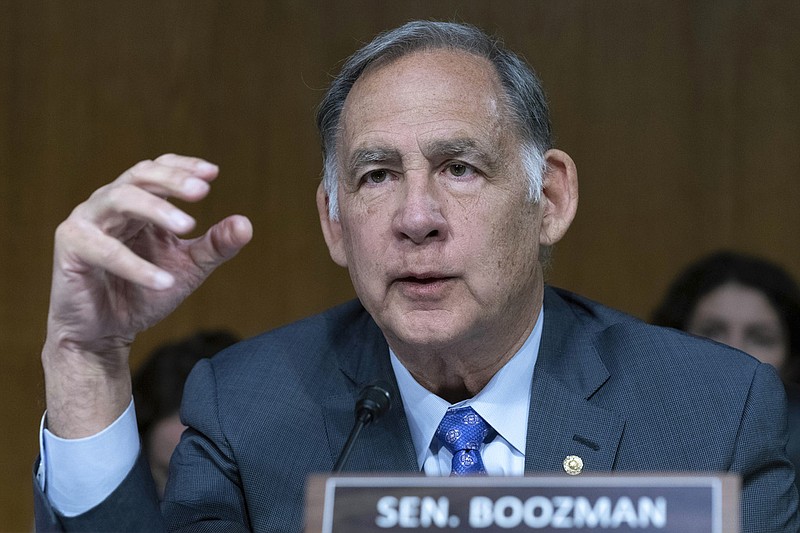Cumbersome federal regulations, whether they govern time-consuming and hard-to-complete grant applications or financial lending amid still-high inflation, are affecting small businesses, especially those in rural areas, U.S. Sen. John Boozman, R-Ark., said Friday in Little Rock.
Speaking amid an announcement that Goldman Sachs' business education program for entrepreneurs is expanding into rural areas, Boozman, an optometrist who used to run his own clinic in Rogers, noted the capital, leadership, expertise and work ethic required to make an entrepreneur, as well as the money a bank lent to him, helped make his business successful.
"Sadly, I think if we had tried to start that business now with the rules and regulations in place, it would really be very difficult to do that," he said. "At a time when capital has quickly become more expensive with a massive increase in interest rates, regulators are adding to the problem by discouraging banks from lending. As a result, this discourages growth and development. And I hope that we can all support policies that would help small businesses thrive and push back on those that don't."
Boozman decried laborious and esoteric paperwork needed for small and mid-sized cities to apply for federal grants, saying, "If you've got a college education and you've got some sense, you ought to be able to sit down and fill the form out."
Regulating banks' lending practices so that they affect businesses' borrowing ability is "so difficult now because we're in this transition phase from, essentially, very, very low interest rates," Boozman said in an interview. "People have built their business model on that. All of the sudden, interest rates go up. And then on top of that, the regulatory atmosphere regarding who can get a loan, who cannot [and] how you qualify has gone up dramatically."
The senator said microloans, at values up to $50,000 provided by Small Business Administration funding intermediaries, could be helpful to rural America.
"We can come up with the capital. There are philanthropists who are willing to do that," Boozman said. "The biggest challenge with microloans is working with the people who are trying to get the money and going through their business plan to make sure it's a viable operation."
Some entrepreneurs have good ideas but don't think about specific costs associated with a business, he said, but there are professionals with the expertise needed to find those problems. Expanding that industry will require the federal government "to think outside the box," Boozman said, especially as rural areas continue to lose population.
Earlier during the Q&A, organized by Washington political news organization Punchbowl News at the Clinton Presidential Library and Museum, Boozman also touched upon the potential domestic impact of the situation in the Middle East after his colleague, U.S. Sen. Tom Cotton, R-Ark., said the conflict is a sign of Iranian bellicosity and called for a direct strike against the nation.
Boozman urged people to think about what would happen if the conflict spreads across the region and suggested the next week will be critical.
"What's going to happen to you if we have a $150 barrel of oil? A $200 barrel? These are real things," he said. "The same thing is true in Ukraine. The Chinese are watching. If we back up there like we did in Afghanistan, then they're going to eye Taiwan.
"What would it do to your businesses if all of the sudden, at the very least, we're not trading any with China. You'd have to completely redo your supply chains; we saw it during the pandemic."

